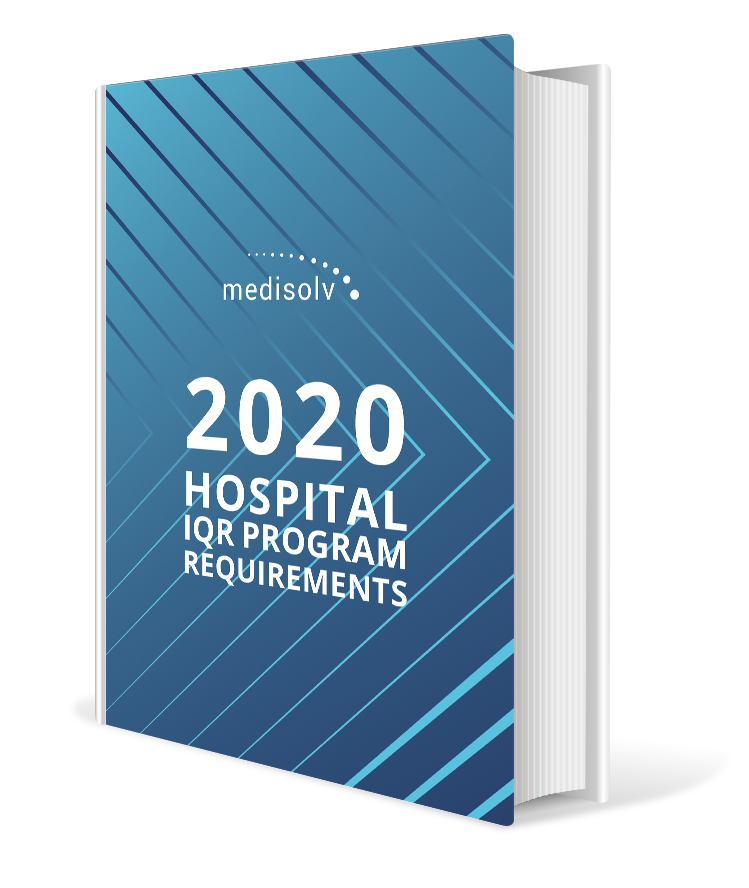5 Tips to Keep Your New Year’s Resolution on Quality Measures

It’s a fact of life that making New Year’s resolutions is easy, but sticking to them is harder. How many times have you vowed to dust off the treadmill and actually use it, only for it to continue gathering dust until the following New Year’s Eve?
It’s the same with electronic clinical quality measures, or eCQMs. It’s easy to say that you’re going to stop just “checking boxes” and start using them in a meaningful way to improve the quality and safety of patient care at your hospital, health system or medical practice. The truth is that it’s harder to do in reality.
But hard doesn’t mean impossible. This is the year to actually stick with your resolution and use eCQMs to your advantage. You’ve got this—and it’ll be worth it.
Your organization is swimming in quality performance data that you report to Medicare, Medicaid and commercial insurers. It would be a missed opportunity not to use that data for more than just reporting and compliance purposes. You can use it to improve the health and clinical outcomes of your patient population, and you can also use it in your quality-improvement efforts to prevent and detect diseases, as well as diagnose and treat your patients.
As a quality management professional at your organization, making use of eCQM data is a New Year’s resolution for 2020 that’s worth keeping. Think about it: By the end of 2020, you and your organization could be seamlessly using eCQM data to improve care.
There’s a lot of information out there about how to keep your New Year’s resolutions from self-help gurus, but we decided to look to at the most reputable self-help guru we could think of: the American Psychological Association. The APA is the scientific and professional group that represents psychologists in the U.S. So, who better to know what will help you stick to your New Year’s resolutions?
The APA offers five tips and tricks to make your New Year’s resolutions stick. We’ve summarized the APA’s advice below and applied them to your hospital, health system or medical practice:
1. Start small
What the APA says: “Make resolutions that you think you can keep.”
What it means for you:There are dozens of eCQMs out there to choose from (15 hospital eCQMs and 47 ambulatory eCQMs, to be precise). Trying to use them all to improve care at your site is as unrealistic as a couch potato saying they’re going to exercise every day for a year. When it comes to resolutions, it’s better to start with an achievable regimen and build on that foundation.
The same is true of quality measures. Start with the measures that are required for your regulatory program fulfillment: Choose four hospital eCQMs and six ambulatory eCQMs to meet your minimum requirements. If you already have your eCQMs selected, confirm that you have the populations to support the measure and that you have enough data to identify patterns. These patterns will help point to areas of care delivery that you could improve upon to produce better outcomes for patients.
2. Change one behavior at a time
What the APA says: “Don’t get overwhelmed and think that you have to reassess everything in your life. Instead, work toward changing one thing at a time.”
What it means for you: Complex behaviors are difficult to change by themselves, let alone all at once. But none may be as complex as the journey of patient care from beginning to end. That’s where eCQMs can be helpful. Your eCQM data may flag structural or process issues that could be leading to less-than-optimal health or clinical outcomes. Seen all together, this could feel overwhelming, so it’s important to take it one step at a time. Start by identifying which variables could be causing the problem, such as social determinants of health, medication adherence, physician practice patterns or access to post-acute care. Listen to the data, and if you identify more than one variable at play, use a process of elimination. Address variables one at a time and observe what effect each has on patient outcomes. A methodical approach is much more manageable than trying to overhaul your entire process at once.
3. Talk about it
What the APA says: “Share your experiences with family and friends. Consider joining a support group to reach your goals.”
What it means for you: Patient care is a team sport. What makes a team effective is good communication. Knowledge, expertise and experience don’t mean much unless team members can share those competencies with one another. Consider all the people involved in collecting and submitting eCQMs at your organization. Congratulations, you’ve found your support group. When you start using quality measures to improve the quality and safety of care at your site, talk about what you’re doing with others, and not just with the people sitting across from you in your department. Run what you’re finding by everyone who interacts with a patient along the continuum of care. They will be a source of insight, encouragement and resolution accountability.
4. Don't beat yourself up
What the APA says: “Perfection is unattainable. Remember that minor missteps when reaching your goals are completely normal.”
What it means for you: Of all the APA’s pieces of advice on how to stick to your New Year’s resolutions, this one might be the toughest to accept. Healthcare quality professionals and clinicians are perfectionists by nature. But using eCQM data to improve your care quality for the entirety of 2020 probably won’t happen. Make your expectations about this resolution realistic, and don’t let small missteps derail your journey toward optimal patient care.
5. Ask for support
What the APA says: “Accepting help from those who care about you and will listen, strengthens your resilience and ability to manage stress caused by your resolution.”
What it means for you: Everyone in your hospital, health system or medical group has the same goal: better health and better outcomes for patients. It’s difficult to use quality performance data that you collect and report to others internally to improve the quality and safety of patient care. Quite frankly, that’s why most healthcare organizations don’t do it. They see it as something you have to do to meet a requirement so you can get paid. But like losing weight, exercising or stopping smoking, the benefits of keeping this eCQM data resolution are substantial and long-lasting. There is no shame in seeking tactical support from your colleagues who share the same goal, or in seeking additional resources from senior management.
If you resolve to be using meaningful eCQM data by the end of 2020 and stop merely “checking the boxes,” Medisolv can help you keep your resolution. Our suite of quality management solutions can support your quality-improvement initiative each and every day of the New Year.
For more tips and tricks, please read “Dear Medisolv: How Can I Reignite Our Passion for Patient Safety?”
|

|






Comments